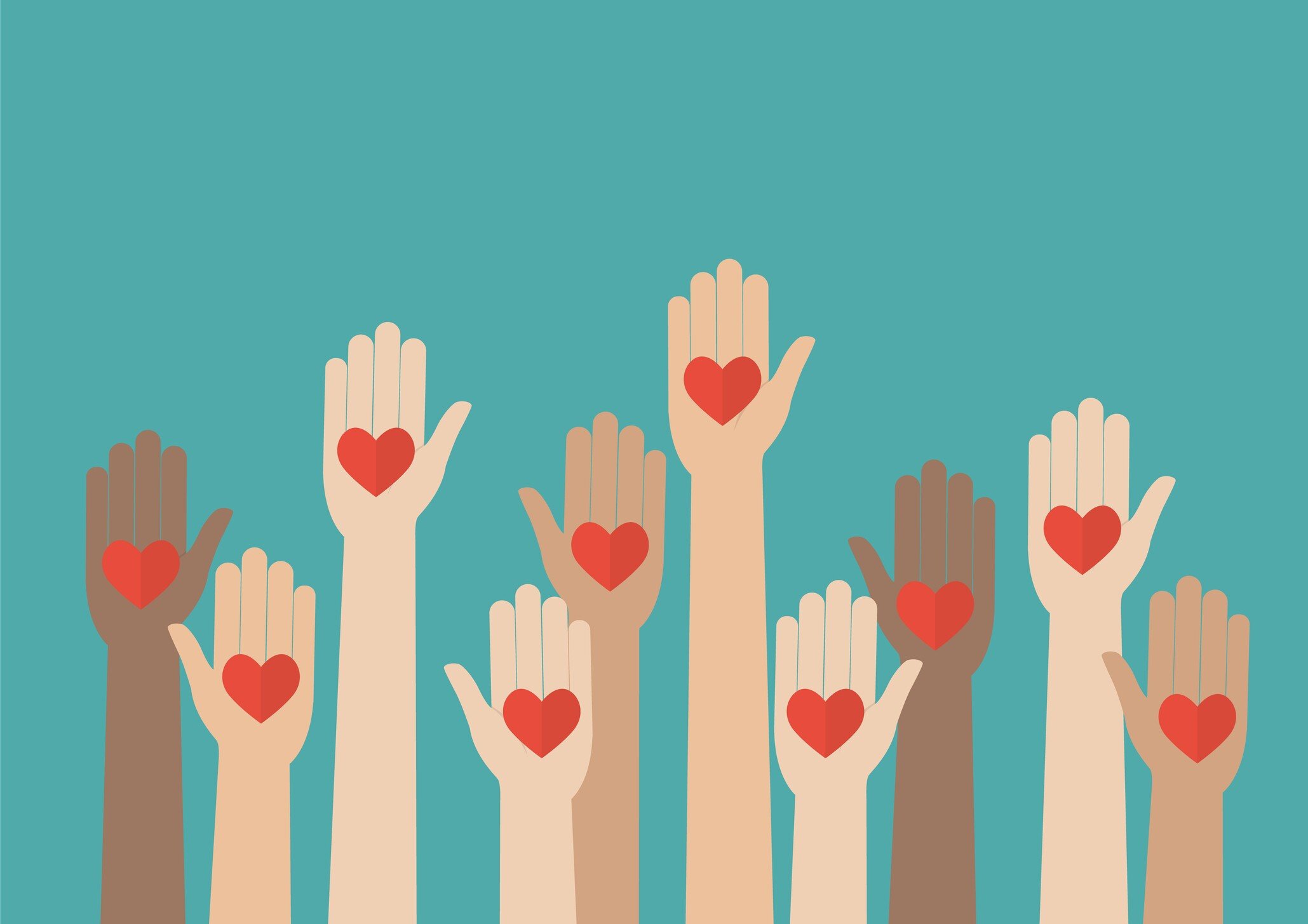Mutual Aid: Asking is as important as giving
By: Tyler Graham, Caremongering London
Shawna Lewkowitz, Urban League of London
One thing the covid-19 pandemic has made clear is that people want to help and support one another, particularly in times of crisis. People have come forward in all kinds of ways to volunteer. Offering to pick up groceries, run errands, swap goods, deliver meals, and provide financial support where needed. But much of this volunteering looks very different from what we think of and know about traditional volunteering. It is grounded in mutual aid, notions of solidarity and collective action that operate outside of formal nonprofit and charitable organizations. A model of give and take.
Locally, Caremongering (a mutual aid Facebook group), formed early on in the COVID-19 crisis with this mission statement: “to ensure marginalized and/or oppressed community members have access to food, housing, healthcare, and other necessities.” With over 3,500 members, the group’s success speaks of the need mutual aid fulfills, but also the desire people have to be a part of something positive and transformative.
Similarly, the Urban League of London is supporting the development of Neighbourhood Pods. Hyper local groups of 5-30 people who live in close proximity to one another and provide various kinds of support to their neighbours. Pods have developed across London, alongside a network of neighbourhood pods across Canada. By offering to pick up groceries, swap seeds and asking for someone to cut a lawn, walk a dog, or check on someone’s mental health - deeper connections and a sense of solidarity are growing among neighbours.
Both of these local initiatives are grounded in the principles of mutual aid. Foundational anarchist Peter Kropotkin’s book, Mutual Aid: A Factor of Evolution, reflects on the ubiquity of mutual aid, noting that it has been present in some form or another at every point in human history, and is astonishingly common in the animal kingdom as well. Most notably associated with the mutualist movement, the trade union movement, and community organizing in the 60s and 70s among racialized communities, mutual aid networks typically use participatory democracy, solidarity, and volunteerism as core organizational principles. That is to say, to be a member of a mutual aid network, you don’t have to be rich, of a certain social status, or even of a particular political persuasion. All you need to do to be part of a mutual aid network, is participate in the mutual aid network.
At first glance, even this criteria may seem prohibitive to some. After all, I don’t want to commit to shopping everyday for strangers I don’t know, just to be part of a network I may or may not benefit from in the future. Luckily, Caremongering’s city-wide network and Urban League of London’s neighbourhood pods do not have any minimum requirements: you put in what you can, and you get what you need - that’s mutual aid.
Moreover, participation in these networks does not even necessarily mean participating as a volunteer. While true that there are always needs that need to be met by volunteers, a mutual aid network requires members to participate as requesters as much (or more) than it requires them to participate as volunteers.
Interestingly, because people are used to operating within traditional institutions and notions of volunteering, we find that people are much more likely to offer up what they can give, rather than ask for what they need. This means that as mutual aid groups, we have an overabundance of people willing to help out and fewer people asking for what they need. This may sound like a good problem to have, but it means we aren’t truly recognizing our collective power.
It is hard for people to ask for what they need. Stigma of the poor, differently abled folx, and other people historically pushed to the margins highlight that real risk. But the reality is we all have needs and wants, and if we want to move past systems that oppress people, we have to look to new ways of being in relationship to one another. Relationships grounded in recognition of our mutual strengths and shared vulnerabilities.
What does this look like in practice? One of our local pods has done book swaps and plant exchanges. Another has put out regular emails when going grocery shopping, encouraging neighbours to request pickup of needed items. The Caremongering group put a call out on their page to remind members that we all have asks, prompting people to put out a need on the thread. The results are people asking for seeds, cloth masks, compost bins, a grocery pickup, and more.
There is no doubt that there are those in our community who have less - people who go without housing, food, connection, and basic needs. Historical and contemporary injustices related to race, colonization, transphobia, xenophobia, homophobia, classism, and ableism are at the roots of much of this inequity. Organizations and volunteers are doing important work to address these issues and that needs to continue. But alongside of this formal work, there is the collective action of grassroots organizations and a growing recognition of what we can do for one another outside of formal volunteering and nonprofit organizations.
Asking for what we need may not at first seem like a radical or transformative idea, but in a system that traditionally places power in the hands of those who have, to give to those who don’t, it offers up a different possibility that recognizes our mutual interdependence.

